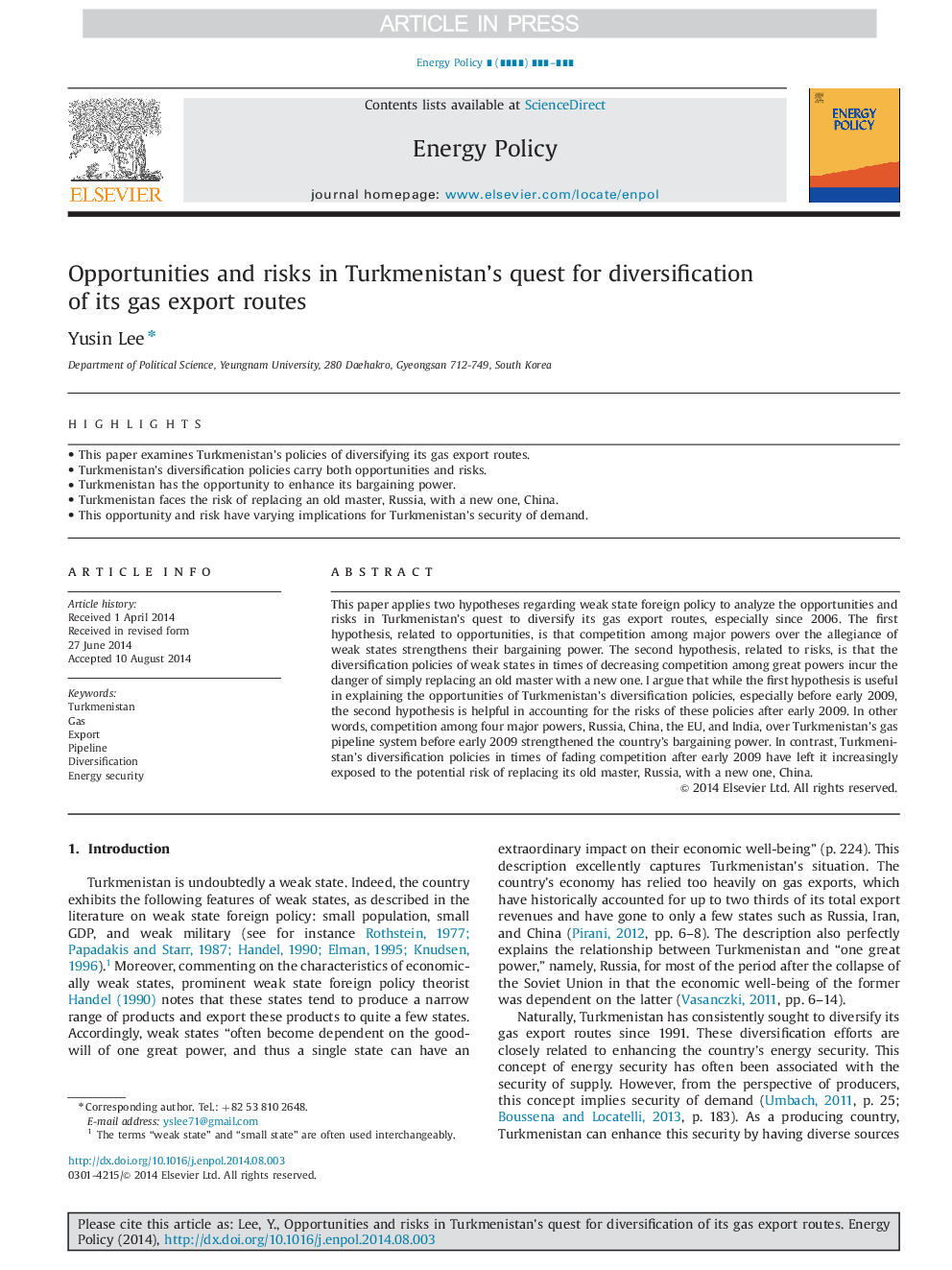| Article ID | Journal | Published Year | Pages | File Type |
|---|---|---|---|---|
| 7401477 | Energy Policy | 2014 | 10 Pages |
Abstract
This paper applies two hypotheses regarding weak state foreign policy to analyze the opportunities and risks in Turkmenistan's quest to diversify its gas export routes, especially since 2006. The first hypothesis, related to opportunities, is that competition among major powers over the allegiance of weak states strengthens their bargaining power. The second hypothesis, related to risks, is that the diversification policies of weak states in times of decreasing competition among great powers incur the danger of simply replacing an old master with a new one. I argue that while the first hypothesis is useful in explaining the opportunities of Turkmenistan's diversification policies, especially before early 2009, the second hypothesis is helpful in accounting for the risks of these policies after early 2009. In other words, competition among four major powers, Russia, China, the EU, and India, over Turkmenistan's gas pipeline system before early 2009 strengthened the country's bargaining power. In contrast, Turkmenistan's diversification policies in times of fading competition after early 2009 have left it increasingly exposed to the potential risk of replacing its old master, Russia, with a new one, China.
Related Topics
Physical Sciences and Engineering
Energy
Energy Engineering and Power Technology
Authors
Yusin Lee,
